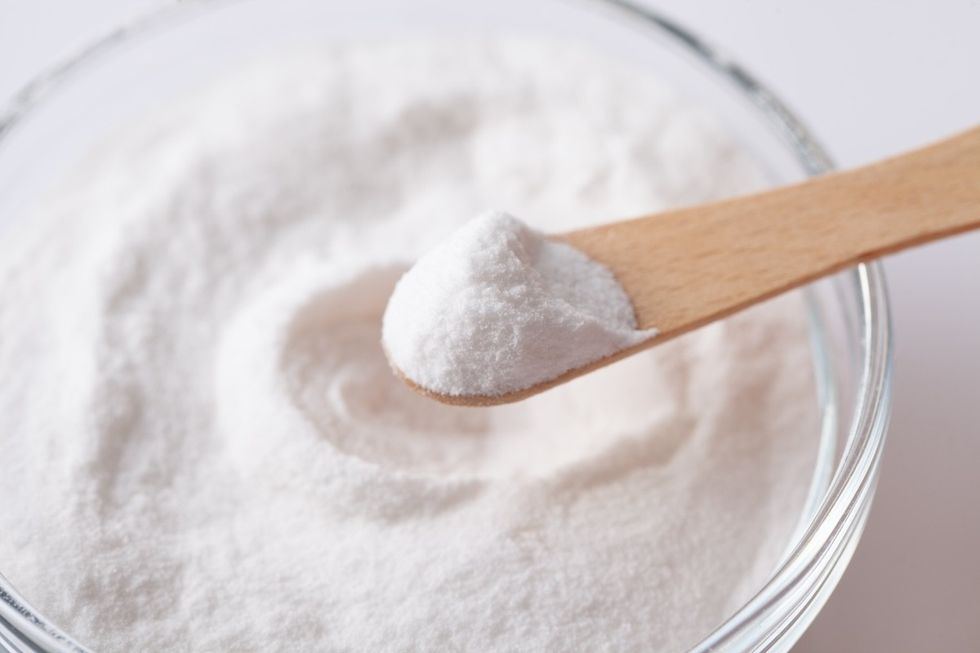Diet soda fans, listen up: The star ingredient in your favorite drink that makes it “sugar-free” is facing mounting scrutiny.
Aspartame, one of the world’s most commonly used artificial sweeteners found in more than 2,500 American products like Coke Zero, Diet Pepsi, sugar-free gum, low-calorie dairy products, cereals, snacks, and some medications, is facing a potential ban in Europe. Earlier this week, on World Cancer Day (Feb. 4, 2025), the consumer advocacy group Yuka, the French League Against Cancer, and foodwatch joined forces to launch a campaign urging the European Union to restrict aspartame due to its health risks. Could the U.S. be next? Here’s what experts are saying.
RELATED: Nutritionists Reveal the #1 Way to Cut Sugar From Your Diet
Why Is Aspartame Under Fire?
Shutterstock
As we’ve previously reported, the use of artificial sweeteners like aspartame has been linked to type 2 diabetes, cardiovascular disease, weight gain, and as the experts behind this new ban proposal warn, cancer.
Since its introduction in the 1980s, health experts have been debating aspartame’s potentially carcinogenic properties.
In July 2023, the World Health Organization’s International Agency for Research on Cancer (IARC) dropped a bomb on the public by classifying aspartame as “possibly carcinogenic to humans.” The ruling was decided on after examining available scientific studies about the effects of aspartame consumption in humans, animals, and mechanistic data and finding “limited” support.
At the time, the Joint Expert Committee on Food Additives (JECFA) confirmed the acceptable daily intake of aspartame to be 40 mg/kg body weight.
But now, a trio of organizations is pleading with the EU that there is enough evidence to ban aspartame altogether.
“There is no reason to allow people to be exposed to a completely avoidable cancer risk,” said Philippe Bergerot, president of the French League Against Cancer, in a press release. “The WHO and numerous scientific studies highlight this risk. We can’t say we didn’t know.”
The petition is asking that aspartame be banned in 11 European countries: Germany, Austria, Belgium, Spain, France, Italy, Ireland, Luxembourg, the Netherlands, the United Kingdom, and Switzerland.
Given that the EU has a positive track record of advocating for natural and whole ingredients in food rather than potentially hazardous chemicals (many of which are still permitted in the U.S.), the groups behind the proposed ban say this is an obvious move.
“An additive with so many risks has no place in our food or drinks,” said Camille Dorioz, Campaigns Director at foodwatch France. “By highlighting the potential cancer risks of aspartame, the WHO has sent a clear warning about its danger to our health. European leaders must protect us.”
RELATED: 17 Easy Ways to Eat Less Sugar and Lose Belly Fat
Will the U.S. Ban Aspartame Next?
The U.S. Food and Drug Administration (FDA) continues to permit the use of aspartame in over 2,500 grocery store and pharmacy products. What’s more, the organization does not agree with the WHO’s July 2023 ruling.
“The FDA is aware of the International Agency for Research on Cancer (IARC) and Joint FAO/WHO Expert Committee on Food Additives (JECFA) conclusions about aspartame issued July 14, 2023,” the FDA’s website states. “Aspartame being labeled by IARC as ‘possibly carcinogenic to humans’ does not mean that aspartame is actually linked to cancer.”
The FDA goes on to state that it “disagrees with IARC’s conclusion,” citing “significant shortcomings” in the research.
Therefore, as of today, aspartame and its use in sugar-free and low-calorie foods, like diet soda, energy drinks, processed snacks, and medicinal products, like vitamin gummies, is not restricted.
The FDA shows “safe levels ” of consumption in the U.S. in the chart below, and states the acceptable daily limit is 50 mg/kg bodyweight for both adults and children.

Should You Stop Consuming Aspartame?
According to a 2024 study published in the Journal of Exposure Science & Environmental Epidemiology, over 62% of Americans regularly consume products containing aspartame.
While the FDA has yet to act on growing global concerns about the health impacts of artificial sweeteners, experts suggest cutting back on aspartame as a precautionary measure.
Here’s how to limit your exposure:
- Opt for whole, unprocessed foods. Fruits, vegetables, nuts, seeds, lean meats, and fish do not contain artificial sweeteners.
- If you have a sweet tooth, consider monk fruit or raw honey to make dishes and drinks taste better.
- When buying packaged goods, read ingredient labels carefully. Aspartame can appear under different names, like E951, NutraSweet, and Equal.
As pressure mounts for stronger regulations, the debate over aspartame’s safety is far from over—both here in the states and abroad. You can do your due diligence by keeping an eye out for emerging research and opt for nature-made whole foods whenever possible to keep your health in check.

